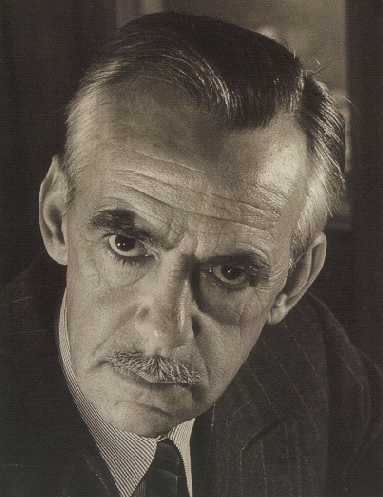Eugene O’Neill (Eugene Gladstone O'Neill)

After his experience in 1912–13 at a sanatorium where he was recovering from tuberculosis, he decided to devote himself full-time to writing plays (the events immediately prior to going to the sanatorium are dramatized in his masterpiece, Long Day’s Journey into Night). Eugene O’Neill had previously been employed by the New London Telegraph, writing poetry as well as reporting. In the fall of 1914, he entered Harvard University to attend a course in dramatic technique given by Professor George Baker. He left after one year and did not complete the course. During the 1910s Eugene O’Neill was a regular on the Greenwich Village literary scene, where he also befriended many radicals, most notably Communist Labor Party of America founder John Reed. O’Neill also had a brief romantic relationship with Reed’s wife, writer Louise Bryant.[citation needed] O’Neill was portrayed by Jack Nicholson in the 1981 film Reds, about the life of John Reed. His involvement with the Provincetown Players began in mid-1916. O’Neill is said to have arrived for the summer in Provincetown with “a trunk full of plays.” Susan Glaspell describes a reading of Bound East for Cardiff that took place in the living room of Glaspell and her husband George Cram Cook’s home on Commercial Street, adjacent to the wharf (pictured) that was used by the Players for their theater: “So Gene took Bound East for Cardiff out of his trunk, and Freddie Burt read it to us, Gene staying out in the dining-room while reading went on. He was not left alone in the dining-room when the reading had finished.” The Provincetown Players performed many of O’Neill’s early works in their theaters both in Provincetown and on MacDougal Street in Greenwich Village. Some of these early plays began downtown and then moved to Broadway.
Eugene O’Neill’s first published play, Beyond the Horizon, opened on Broadway in 1920 to great acclaim, and was awarded the Pulitzer Prize for Drama. His first major hit was The Emperor Jones, which ran on Broadway in 1920 and obliquely commented on the U.S. occupation of Haiti that was a topic of debate in that year’s presidential election. His best-known plays include Anna Christie (Pulitzer Prize 1922), Desire Under the Elms (1924), Strange Interlude (Pulitzer Prize 1928), Mourning Becomes Electra (1931), and his only well-known comedy, Ah, Wilderness!, a wistful re-imagining of his youth as he wished it had been. In 1936 he received the Nobel Prize for Literature after he had been nominated that year by Henrik Schück, member of the Swedish Academy. After a ten-year pause, O’Neill’s now-renowned play The Iceman Cometh was produced in 1946. The following year’s A Moon for the Misbegotten failed, and it was decades before coming to be considered as among his best works. He was also part of the modern movement to partially revive the classical heroic mask from ancient Greek theatre and Japanese Noh theatre in some of his plays, such as The Great God Brown and Lazarus Laughed.
Born
- October, 16, 1888
- USA
- New York, New York
Died
- November, 27, 1953
- USA
- Boston, Massachusetts
Cemetery
- Forest Hills Cemetery and Crematory
- Jamaica Plain, Massachusetts
- USA



